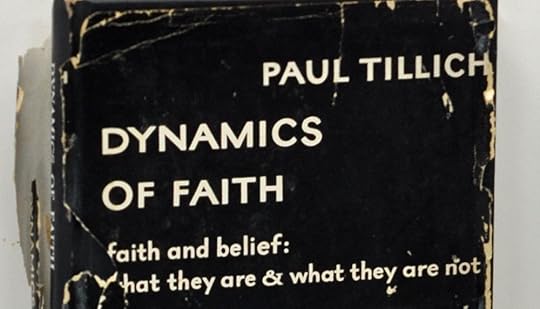Peter Rollins's Blog, page 6
May 18, 2016
Pack of 10 Limited Edition “Rapture” Tracts
This is a limited edition tract that I did in collaboration with the designer Layren Bakker. The tract mimics the old fundamentalist Chick tracts, but subverts the message commonly found there. This is a rare little item that was out of print since 2010.
Buy Direct (Coming Soon)
Limited Edition “Rapture” Tracts
This is a limited edition tract that I did in collaboration with the designer Layren Bakker. The tract mimics the old fundamentalist Chick tracts, but subverts the message commonly found there. This is a rare little item that was out of print since 2010.
Buy Direct (5 Pack)
Buy Direct (10 Pack)
Pack of 5 Limited Edition “Rapture” Tracts
This is a limited edition tract that I did in collaboration with the designer Layren Bakker. The tract mimics the old fundamentalist Chick tracts, but subverts the message commonly found there. This is a rare little item that was out of print since 2010.
Buy Direct (Coming Soon)
Vanishing Act of God
The Divine Magician, represents the culmination of a project I’ve been developing and deepening since How (Not) to Speak of God. It offers a radical vision of faith that critiques religion, subverts the distinctions between belief and non-belief, and presents Christianity as an incendiary counter-cultural commitment foreclosed by todays dominant sacred and secular institutions.
In this online course you receive five 90 minute talks (in both video and audio only formats) that carefully work through the book. In the talks I explore the rich constellation of theories and thinkers that inform it and discuss its practical application. That’s almost eight hours of material for those long commutes.
Buy Direct (Coming Soon)
The Passion: A Critique of Meaning and Power

In the second week of my online event, The Omega Course, we’ll be exploring a subversive reading of Christianity that articulates it as having a pyro-theological core that burns up the regimes of meaning and power.
The reading will be taken from a rather hard to get book called Christ and the End of Meaning by Paul Hessert (currently going for $100). In this book he articulates the twin ideological drives of understanding and control. He writes of how “Meaningful Christianity” acts as a way legitimizing these pursuits by grounding meaning and power in the divine. Secular society feeds off, mirrors, and/or seeks legitimation from religion by valorizing understanding and control.
In contrast, Hessert argues that the scandal of Christianity lies in the way that it breaks these apart. In contrast, he articulates a gospel that is foolishness to those who want meaning and a stumbling block to those who seek power. Reading the Crucifixion against signs (meaning) and wonders (power), Hessert views it as a fundamental smashing of societies circle of reality. Christianity can neither be the creator or legitimator of ideology, but only its judge, jury, and executioner.
The bold claim of the book is that, to be a Christian, involves courageously living into the absence of meaning and power. Becoming an impotent fool in the eyes of the world.
The Crucifixion thus functions in much the same way as Shoah does within much Jewish thought. Not as an event which can be swallowed up in meaning, but as that which sticks in the throat of all attempts. The result is a phenomenally powerful and challenging reading of the Crucifixion that fundamentally stands against all attempts at reducing it to some kind of metaphysical system of meaning (Ransom, Satisfaction, Moral etc.)
If you’d like to find out more about this searing approach to Christianity, sign up to The Omega Course here
A Forty Day Journey Into the Cloud of Unknowing (3 Pack)
Originally developed as a forty day Lenten practice, this course was so successful that I’m releasing it as a practice people can engage in throughout the year. While individuals can do this course, the course will be particularly powerful if it is engaged in by groups.
If you sign up you’ll get five weeks worth of material. You’ll receive a carefully curated mix of articles, podcasts, book excerpts and videos designed to take you on a journey into the type of experience so powerfully captured in Christ’s cry, “My God, my God, why have you forsaken me.”
Over the five weeks the daily reflections will introduce you to many of the greatest critiques of religion, crafted by some of the most insightful thinkers our world has produced.
In addition to all the material, you will get instructions for how to do the course and five talks by me provide context for everything you’ll encounter (a talk for the start of each week). These talks are available in both video and audio-only formats.
So why would you ever want to do this?
Perhaps you’ve always been interested in engaging with some of the best critiques of religion. Or maybe you’re a believer who suspects that the material might not be as anti-faith as some say. Or it could be that you just want some good old-fashioned intellectual stimulation.
On top of the more garden variety atheism well known today, we’ll explore why many mystics, theologians and philosophers have claimed that atheism is closer to the truth of faith than theism – an idea that has annoyed and confused people on both sides of the theist/atheist divide.
The course is split into two sections. The first explores philosophical atheism, while the second delves into theological atheism.
Buy Direct (Coming Soon)
A Forty Journey Into the Cloud of Unknowing (Individual)
Originally developed as a forty day Lenten practice, this course was so successful that I’m releasing it as a practice people can engage in throughout the year. While individuals can do this course, the course will be particularly powerful if it is engaged in by groups.
If you sign up you’ll get five weeks worth of material. You’ll receive a carefully curated mix of articles, podcasts, book excerpts and videos designed to take you on a journey into the type of experience so powerfully captured in Christ’s cry, “My God, my God, why have you forsaken me.”
Over the five weeks the daily reflections will introduce you to many of the greatest critiques of religion, crafted by some of the most insightful thinkers our world has produced.
In addition to all the material, you will get instructions for how to do the course and five talks by me provide context for everything you’ll encounter (a talk for the start of each week). These talks are available in both video and audio-only formats.
So why would you ever want to do this?
Perhaps you’ve always been interested in engaging with some of the best critiques of religion. Or maybe you’re a believer who suspects that the material might not be as anti-faith as some say. Or it could be that you just want some good old-fashioned intellectual stimulation.
On top of the more garden variety atheism well known today, we’ll explore why many mystics, theologians and philosophers have claimed that atheism is closer to the truth of faith than theism – an idea that has annoyed and confused people on both sides of the theist/atheist divide.
The course is split into two sections. The first explores philosophical atheism, while the second delves into theological atheism.
Buy Direct (Coming Soon)
May 17, 2016
Faith: Sublime and Monstrous

Next month I start a four-week online event called The Omega Course: Adventures in Religionless Christianity. Each week we’ll be exploring an alternative approach to faith than the one we have likely grown up with. To do this, I’ll be introducing people so some important dissident thinkers with subversive ideas. As part of the course everyone will get something to read each week, some it hard to get, and I’ll be giving a life lecture online. In my next few posts I just want to introduce you to some of the ideas well be exploring.
In the first week we’ll be exploring Paul Tillich’s notion of faith from Dynamics of Faith. In this book Tillich offers up an interpretation of faith that places it at odds with what we associate with the word “religious”.
For Tillich, faith is a word that describes ultimate concern. Ultimate concern meaning the human attachment to something that becomes all consuming and all important. Faith is then a form of excessive attachment that goes beyond what can be explained in purely utilitarian terms. We can see this type of ultimate concern everywhere from the greatest love stories to the child who resolutely refuses to eat her vegetables.
Faith, for Tillich, is neither inherently good nor restricted to a certain group of (religious) people. Faith is a human reality that marks everyone whether they identify with theism, atheism, the sacred, or the secular. It is a profound human reality that has both a beautiful and monstrous manifestation.
The monstrous side of faith is expressed in any ultimate concern for something that isn’t ultimate. For something that is finite and limited and graspable. For instance, one can express faith for Nation. When someone is willing to live and die for their country whatever their country does, this is idolatrous faith. The actual existing finite Nation is raised to the level of the infinite and sacrificed to accordingly.
Yet, for Tillich, the alternative is not some kind of disembodied faith in some abstract, otherworldly idea. This would ultimately just be another version of idolatrous faith, for whatever otherworldly idea we came up with would be an idea, and thus something all too fallible and finite.
Instead, Tillich describes a type of faith that attaches itself to some finite thing, yet connects with the part of that thing which transcends it. As an example, a non-idolatrous faith could equally express itself in a love of Nation. But it would look quite different that the form described above. It would be seen in the individual who says, “I love my country, and I believe that it stands for the principles of democracy, freedom and liberty. So when my nation falls short of those things it is my duty to stand against it as an act of patriotism”. Here the individual is attaching themselves to their country, but they are relating themselves to principles that cannot be directly grasped. Democracy, for example, is never rendered complete in any given system, it is a type of promise that we cannot quite grasp, but that grasps us. To give oneself to democracy in a non-idolatrous sense is to be sensitive to this transcendent element, this promise given in the name. The example isn’t completely clear because one can still have an idolatrous relationship to democracy if one thinks that it can be fully realized in some actual system. It is non-idolatrous in so far as it breaks free of our attempts to domesticate it, and rather calls us to act.
Or, to use another example, an idolatrous form of ultimate concern can be seen in a parent who treats his child as some ideal person who can never do anything wrong. If ever a teacher gives the child a bad mark or detention the parent assumes that the teacher is wrong. A non-idolatrous form of ultimate concern is expressed by the parent who equally loves their child infinitely, yet who can hold their child to account precisely out of their love of who their child might become i.e. loving something in the child that is not graspable, but that exists as potential.
This hopefully helps us to introduce Tillich’s understanding of Ultimate Concern along with Idolatrous and non-idolatrous types of faith. In the course we’ll also explore what he means by symbolic understandings of God, broken myths and unbroken myths.
The Sublime and Monstrous Faces of Faith

Next month I start a four-week online event called The Omega Course: Adventures in Religionless Christianity. Each week we’ll be exploring an alternative approach to faith than the one we have likely grown up with. To do this, I’ll be introducing people so some important dissident thinkers with subversive ideas. As part of the course everyone will get something to read each week, some it hard to get, and I’ll be giving a life lecture online. In my next few posts I just want to introduce you to some of the ideas well be exploring.
In the first week we’ll be exploring Paul Tillich’s notion of faith from Dynamics of Faith. In this book Tillich offers up an interpretation of faith that places it at odds with what we associate with the word “religious”.
For Tillich, faith is a word that describes ultimate concern. Ultimate concern meaning the human attachment to something that becomes all consuming and all important. Faith is then a form of excessive attachment that goes beyond what can be explained in purely utilitarian terms. We can see this type of ultimate concern everywhere from the greatest love stories to the child who resolutely refuses to eat her vegetables.
Faith is neither inherently a good for Tillich nor something restricted to a certain religious worldview. Faith is a human reality that marks everyone whether they identify with theism, atheism, the sacred, or the secular. It is a human reality that has both a beautiful and monstrous manifestation.
The monstrous side of faith is expressed in any ultimate concern for something that isn’t ultimate. For something that is finite and limited and graspable. For instance, one can express faith for Nation. When someone is willing to live and die for their country whatever their country does, this is idolatrous faith. The actual existing finite Nation is raised to the level of the infinite and sacrificed to accordingly.
Yet, for Tillich, the alternative is not some kind of disembodied faith in some abstract, otherworldly idea. This would ultimately just be another version of idolatrous faith, for whatever otherworldly idea we came up with would be an idea, and thus something all too fallible and finite.
Instead, Tillich describes a type of faith that attaches itself to some finite thing, yet connects with the part of that thing which transcends it. As an example, a non-idolatrous faith could equally express itself in a love of Nation. But it would look quite different that the form described above. It would be seen in the individual who says, “I love my country, and I believe that it stands for the principles of democracy, freedom and liberty. So when my nation falls short of those things it is my duty to stand against it as an act of patriotism”. Here the individual is attaching themselves to their country, but they are relating themselves to principles that cannot be directly grasped. Democracy, for example, is never rendered complete in any given system, it is a type of promise that we cannot quite grasp, but that grasps us. To give oneself to democracy in a non-idolatrous sense is to be sensitive to this transcendent element, this promise given in the name. The example isn’t completely clear because one can still have an idolatrous relationship to democracy if one thinks that it can be fully realized in some actual system. It is non-idolatrous in so far as it breaks free of our attempts to domesticate it, and rather calls us to act.
Or, to use another example, an idolatrous form of ultimate concern can be seen in a parent who treats his child as some ideal person who can never do anything wrong. If ever a teacher gives the child a bad mark or detention the parent assumes that the teacher is wrong. A non-idolatrous form of ultimate concern is expressed by the parent who equally loves their child infinitely, yet who can hold their child to account precisely out of their love of who their child might become i.e. loving something in the child that is not graspable, but that exists as potential.
This hopefully helps us to introduce Tillich’s understanding of Ultimate Concern along with Idolatrous and non-idolatrous types of faith. In the course we’ll also explore what he means by symbolic understandings of God, broken myths and unbroken myths.
May 13, 2016
Pints and Parables, Grand Rapids, MI

Parables are a type of weaponized dis-course that knock the sensitive listener off-course and onto a radically new one. They tactically confront us with disturbing truths we might otherwise miss, and bring to light what otherwise lies in darkness.
At turns funny, poignant, irreverent, and shocking they cut into us with surgical precision, reaching deep into the hidden recesses of our soul, operating on those parts of our being that more direct speech can’t touch.
Over the years I’ve written dozens of parables and collected hundreds more, deploying them in both my books and public presentations. In this intimate event I’ll be offering some of my favorites along with brief reflections and conversation.
In addition to all this, everyone will receive a limited edition J.T.C. styled parable called “The Rapture”.
If you attend my Building on Fire event during the day you get a free ticket to this event.
Peter Rollins's Blog
- Peter Rollins's profile
- 314 followers



